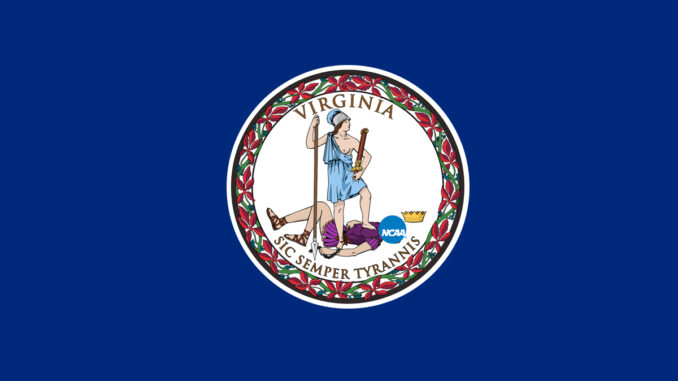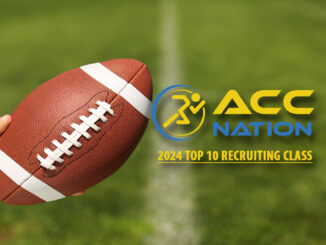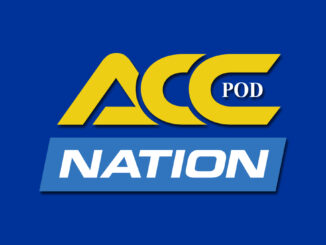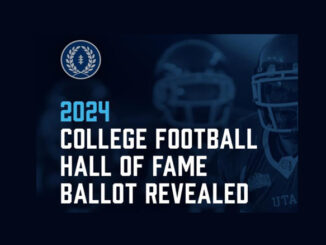
*UPDATED (Jan. 31 6:22pm ET) An antitrust lawsuit has been filed against the NCAA by the Attorney Generals of Tennessee and Virginia in regard to the organizations ban on NIL (Name, Image, Likeness) rights for student-athletes. The suit was filed in U.S. District Court for Eastern Tennessee and alleges that the organization is unfairly restricting how individuals can commercially use NIL and that it constitutes a violation of the Sherman Act. The complaint asks that the NCAA rules be declared unlawful and enjoined.
In 2021 the U.S. Supreme Court rejected in Alston that the NCAA’s “long-held arguments about why its amateurism rules are exempt from the Sherman Act”. The complaint goes on to say that the decision, “especially the restrictions on compensating college athletes” are subject to the antitrust rules.
3 ACC WLAX Teams Top Poll | Eagles Crave Another Shot
Following the decision by SCOTUS, multiple states began to legislate college athletes could and should be compensated fairly and adequately via NIL. In this specific case both Tennessee (January 2022) and Virginia (April 2022) code supports and protects the rights of the athletes within their jurisdiction to earn compensation at a fair market value. In fact, both states prohibit athletic associations from interfering with this right.
NCAA
According to the filing the organization has been “thumbing its nose at the law.” The suit points to allowing NIL licensing to emerge and establish itself nationwide and now trying to “stop that market from functioning.” In January the organization announced new protections that allow current athletes to pursue NIL but effectively banning prospective athletes, including those who want to transfer or use the transfer portal to join a new team from discussing NIL opportunities prior to moving.
Subscribe To ACC Nation Podcast
Synopsis of the claims in the remaining portion of the 20-page document –
- Prohibition of NIL interaction restricts competition among schools and third parties which artificially decreases compensation found in a free-market
- A federal court recently stopped a similar move that restricts players from entering the transfer portal twice which does not allow athletes from realizing their present and future economic potential
- The AG offices ask that the court declare unlawful and enjoin the NCAA NIL-recruiting ban
- The suit is filed to protect their citizens, including college athletes, prospective college athletes and consumers of college athletics
- The complaint points out that because of the organization’s structure athletes “have no viable alternative” than to enroll in an NCAA member school if desiring to compete at the highest level of college sports
- The organization rules govern nearly all aspects of an athlete’s life starting the moment he/she begins 9th grade
- A significant portion of the filing revolves around NIL Collectives and the interaction between athletes, coaches, boosters and collectives
- Access The Document
In the Alston case before the Supreme Court, the NCAA said that “its rules preserve amateurism”, however the court said that the organization does not “define the nature of amateurism they claim that consumers insist upon.” As the complaint points out, even the leaders of major college sports conferences have “never been clear on…what is really meant by amateurism.”
Wake Forest | D1Baseball’s Top Team In ’24 Fired Up
The Prayer For Relief asks that –
- An order declaring the NCAA’s NIL-recruiting ban violates section 1 of the Sherman Act;
- A TRO, then preliminary injunction, then permanent injunction barring the NCAA from enforcing its NIL-recruiting ban or taking any other action to prevent prospective college athletes and transfer candidates from engaging in meaningful NIL discussions prior to enrollment, including under the NCAA’s Rule of Restitution;
- Plaintiffs’ attorneys’ fees, costs and expenses;
- And other such relief that the Court may deem just and proper.
ACC Nation reached out to Virginia Attorney General Jason Miyares’ office and the NCAA for comments and/or responses to questions. We also directed questions to ACC members, Virginia and Virginia Tech. Virginia Athletic Director Carla Williams and Virginia Tech Athletic Director Whit Babcock were asked for comment on the suit.
Listen 24/7 To ACC Nation Radio
A spokeswoman with the AG’s office responded, “Because Virginia public colleges and universities are also our client, we cannot comment on anything that could be Attorney Client Privilege.”
A spokesman with the Virginia Athletic Department responded, “We will not be providing any comments.”
At the time this article was being published there had not been a response from the NCAA or Virginia Tech.
*UPDATED – NCAA comment
“While the NCAA generally does not comment on specific infractions cases, it is important to remember that NCAA member schools and conferences not only make the rules but routinely call for greater enforcement of those rules and holding violators accountable. In recent years, this has been especially true as it relates to establishing and enforcing a consistent set of national rules intended to manage the name, image and likeness environment. This legal action would exacerbate what our members themselves have frequently described as a ‘wild west’ atmosphere, further tilting competitive imbalance among schools in neighboring states, and diminishing protections for student-athletes from potential exploitation. The NCAA remains firmly committed to protecting and expanding student-athletes’ NIL rights and opportunities. However, our membership has steadfastly supported the prohibition on impermissible recruiting contacts, booster involvement in recruiting prospects and the use of NIL offers as recruiting inducements.”






